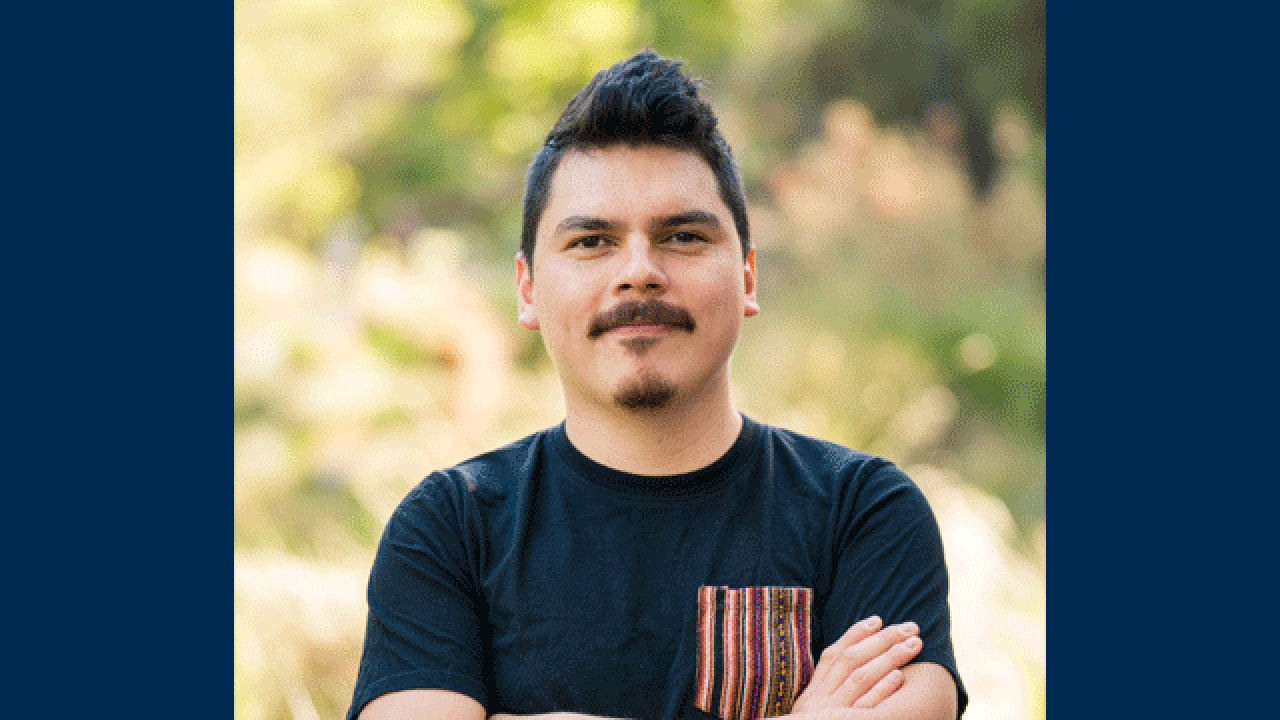
Kinsella Memorial Prize Awarded to Climate Scientist Bernie Bastien-Olvera
Ph.D. graduate recognized for research combining economics, climate science and ecology
Bernardo “Bernie” Bastien-Olvera, a recent Ph.D. graduate from the Geography Graduate Group at UC Davis, is this year’s recipient of the Kinsella Memorial Prize for his doctoral research on the effects of climate-driven impacts on global ecosystems and the influence on human well-being.
The award recognizes a graduate student whose Ph.D. dissertation is of high quality, original, involves more than one field of study and aligns with the mission of the College of Agricultural and Environmental Sciences (CA&ES). The $3,500 prize was established to honor the late John Kinsella, a former CA&ES dean and internationally recognized food chemist.
“I feel so honored to be the recipient of this award,” Bastien-Olvera said. “It’s amazing.”
His dissertation entitled, “Climate Change Impacts on Natural Capital: Consequences for Human Well-Being and Macro-Economic Growth,” included creating a model of the interactions between climate, economics and ecosystems to estimate metrics such as the social cost of carbon, which is the cost society has to bear created by one extra ton of carbon dioxide emissions.
Frances C. Moore, associate professor of environmental science and policy, was Bastien-Olvera’s advisor and praised his interdisciplinary work that “directly addresses important policy questions” around climate change costs and biodiversity policy.
“During his time at Davis, Bernie excelled in every way – as a student, scholar, student leader – while completing highly-original research spanning multiple disciplines,” Moore wrote in a nomination letter.
By the time he completed his Ph.D., Bastien-Olvera had three peer-reviewed published papers related to this doctoral research, including one published in the journal Nature Sustainability. He also holds a master's degree in climate change from University College London and a bachelor's degree in Earth science from the National Autonomous University of Mexico.
He’s currently an institutional postdoctoral fellow at Scripps Institution of Oceanography at the University of California, San Diego, where he’s studying climate change effects on ocean-based economies and ecosystem services.
Bastien-Olvera was born and raised in Mexico City and enjoyed hiking in the wilderness that surrounded him. Time spent in Mexico, London and California made him appreciate the different ecosystems around the world and helped him realize that each person’s connection with nature is not the same, but all are valuable in predicting economic outlooks under climate change.
“We experience nature differently; we need to inform our models from ecological, economic and societal standpoints with different perspectives from the whole community,” he explained. “It’s only when the whole community is represented by these academic tools that we are creating, that we can achieve true climate justice.”
During his time at UC Davis, Bastien-Olvera served on the executive committee of the student organization within the Geography Graduate Group for two years and was president of the Mexican Graduate Student Association. Last year, he and his wife produced a video documentary series on climate change that was broadcast on public television stations in Mexico.
Bastien-Olvera said he’s incredibly proud that two of his published studies were cited in a 2023 economic report compiled by the Counsel of Economic Advisers, a federal agency that provides objective economic advice to the President.
“I was thrilled; it motivates me to keep doing high quality research on economics and ecology and climate change,” he said.
Media Resources
- Bernie Bastien-Olvera, Scripps Institution of Oceanography, bbastien@ucsd.edu
- Tiffany Dobbyn, College of Agricultural and Environmental Sciences, tadobbyn@ucdavis.edu